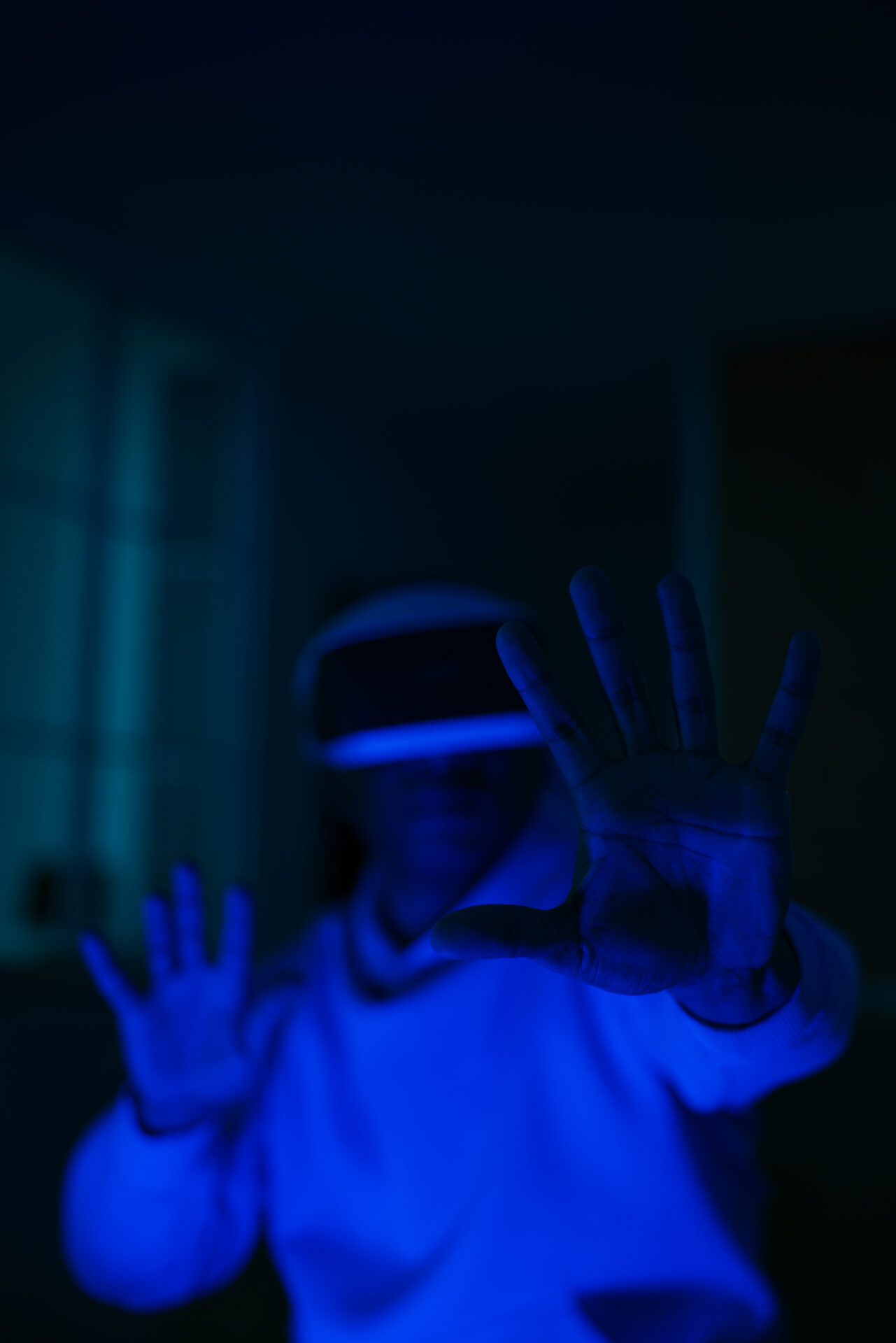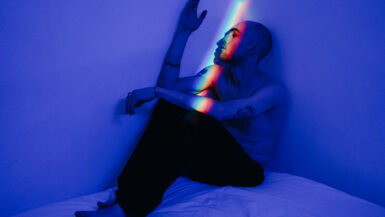As we age, it becomes increasingly important to maintain a healthy sleep schedule for overall well-being and productivity. In this comprehensive guide, we will explore the effects of blue light on sleep patterns and daily functioning, specifically for seniors. Delving into the science behind blue light exposure and sleep disruption, we will discuss the potential consequences of excessive screen time and offer practical solutions to minimize its impact. Ultimately, our aim is to empower seniors with the knowledge to make informed decisions about their nighttime routines, helping them to achieve a more restful and rejuvenating slumber, and in turn, improve their productivity and quality of life.
Recommended Blue Light Filtering Tools for Seniors
As we continue to explore the relationship between blue light and sleep, it is essential for seniors to take proactive steps in reducing their exposure to blue light, especially during the evening hours. In this section, we will discuss several blue light filtering tools and techniques that can be easily adopted by seniors to mitigate the adverse effects of excessive screen time on their sleep patterns and overall well-being.
Blue Light Blocking Glasses
Blue light blocking glasses are an effective and convenient solution for seniors who spend a significant amount of time in front of screens. These specially designed glasses filter out the blue light emitted by digital devices, reducing eye strain and promoting better sleep. With a wide range of styles and price points available, seniors can easily find a pair that suits their needs and preferences.
Screen Filters and Apps
Another effective way to reduce blue light exposure is by using screen filters or apps on digital devices. These tools adjust the color temperature of screens to emit warmer, more sleep-friendly hues during the evening hours. Examples of such apps include f.lux for computers and Night Shift for iOS devices. Additionally, many smartphones and tablets have built-in settings to enable blue light filtering, which can be easily accessed through the device’s settings.
Device-Free Bedtime Routine
One of the best ways to minimize blue light exposure before bedtime is by adopting a device-free routine. Seniors should consider setting aside at least an hour before sleep to engage in relaxing activities that do not involve screens, such as reading a physical book, meditating, or engaging in light stretches. This will not only help reduce blue light exposure but also allow the mind to unwind and prepare for a restful night’s sleep.
Adjusting Room Lighting
The lighting in the bedroom can also play a significant role in sleep quality. Seniors should opt for warm-toned light bulbs, as they emit less blue light compared to cool-toned bulbs. Dimming the lights or using lamps with low-wattage bulbs in the evening can create a calming atmosphere conducive to sleep.
Stay Informed: Blue Light and Health
In order to make the most informed decisions about blue light exposure, it is crucial for seniors to stay updated on the latest research and findings. For instance, did you know that studies have also linked blue light exposure to weight gain? Keeping up with the latest information on blue light effects will enable seniors to make well-informed choices for their health and well-being.
By adopting these recommended blue light filtering tools and techniques, seniors can take control of their exposure to blue light and its impact on their sleep patterns. This, in turn, paves the way for improved productivity, better overall health, and a higher quality of life.
Link Between Blue Light and Productivity in Older Adults
A significant aspect of healthy aging is maintaining productivity levels and mental acuity. In this section, we will explore the connection between blue light exposure and productivity in older adults. By understanding the science behind this relationship, seniors can make informed decisions to optimize their screen time and maintain their cognitive functioning.
The Science Behind Blue Light Exposure and Cognitive Performance
Research indicates that exposure to blue light, particularly during the evening hours, can disrupt the production of melatonin, a hormone responsible for regulating sleep-wake cycles. When melatonin levels are imbalanced, sleep quality is compromised, resulting in fatigue, difficulty concentrating, and reduced cognitive function. As a result, older adults who experience disrupted sleep due to excessive blue light exposure may find it challenging to maintain their productivity levels throughout the day.
Effects of Sleep Deprivation on Productivity
A lack of quality sleep can lead to various health issues, including impaired cognitive performance, which directly affects older adults’ productivity. Sleep deprivation has been linked to reduced memory capacity, slower reaction times, and a decline in decision-making abilities. Consequently, older adults who do not get enough restorative sleep may find it difficult to complete tasks efficiently, stay focused, and engage in problem-solving activities.
Optimizing Screen Time for Enhanced Productivity
To maintain healthy cognitive function and productivity levels, older adults should be mindful of their screen time habits. Establishing a consistent sleep schedule that includes a gradual reduction in screen time before bedtime can help facilitate a more restful night’s sleep. Additionally, incorporating regular breaks from screens during the day can prevent eye strain, promote better focus, and enhance overall productivity.
Importance of a Balanced Lifestyle for Productivity
While minimizing blue light exposure is crucial for maintaining productivity, older adults should also consider the broader context of a balanced lifestyle. Engaging in regular physical activity, maintaining a nutritious diet, staying socially connected, and practicing stress management techniques can all contribute to optimal cognitive performance and productivity levels in seniors.
By being mindful of the link between blue light exposure and productivity, older adults can take proactive steps to optimize their screen time habits and prioritize a balanced lifestyle. This will not only promote better sleep quality but also contribute to maintaining cognitive function and productivity levels, allowing seniors to lead fulfilling and engaged lives.
Practical Tips to Reduce Blue Light Exposure before Bedtime
In order to maintain a healthy sleep schedule and minimize the negative impact of blue light on sleep quality, it is essential for seniors to adopt practical strategies to reduce blue light exposure before bedtime. In this subsection, we will explore a variety of useful tips that can be easily incorporated into seniors’ evening routines, helping them to achieve a restful night’s sleep and improve overall well-being.
Create a Relaxing Pre-Sleep Environment
One of the most effective ways to minimize blue light exposure before bedtime is by creating a relaxing environment that encourages the mind and body to unwind. This can involve dimming the lights in the bedroom, using warm-toned light bulbs, and incorporating calming elements such as soft music, aromatherapy, or a comfortable reading nook. By setting the stage for relaxation, seniors can naturally reduce their reliance on screens during the evening hours.
Establish a Consistent Sleep Schedule
Consistency is key when it comes to promoting healthy sleep patterns. Seniors should aim to establish a regular sleep schedule by going to bed and waking up at the same time each day, even on weekends. This will help regulate the body’s internal clock and make it easier to fall asleep without the need for electronic devices.
Engage in Screen-Free Activities
Incorporating screen-free activities into the evening routine can help seniors reduce their blue light exposure while also providing an opportunity for relaxation and mental stimulation. Some examples of screen-free activities include reading a physical book, journaling, completing puzzles, practicing meditation or light stretches, or engaging in conversation with loved ones. By engaging in these activities, seniors can create a buffer between their daytime screen use and bedtime, facilitating a smoother transition to sleep.
Set Electronic Device Boundaries
It can be helpful for seniors to establish boundaries around their electronic device usage in the evening. This might involve setting a specific time to turn off all screens or creating a designated “device-free” zone in the bedroom. By setting these boundaries, seniors can encourage a more mindful approach to screen time, ultimately reducing blue light exposure during the crucial hours before sleep.
Consider Using Blue Light Filtering Tools
As mentioned earlier, blue light filtering tools such as specialized glasses, screen filters, and apps can be an effective way for seniors to reduce their blue light exposure before bedtime. By incorporating these tools into their daily routines, seniors can mitigate the effects of blue light on their sleep patterns, without having to completely give up their electronic devices.
By implementing these practical tips, seniors can take control of their blue light exposure, paving the way for better sleep quality and overall well-being. Emphasizing the importance of consistent sleep schedules, screen-free activities, and mindful device usage, these strategies can help seniors maintain a healthy balance between screen time and restorative rest.
Effects of Blue Light Exposure on Senior Sleep Patterns
In this subsection, we will delve into the specific impact of blue light exposure on the sleep patterns of seniors. By understanding the science behind these effects, we aim to provide valuable insights to help older adults make informed decisions about their screen time habits and nighttime routines. Additionally, we will explore the potential consequences of disrupted sleep on seniors’ overall well-being and discuss how they can take proactive steps to minimize the impact of blue light on their slumber.
Understanding the Science: Blue Light and Melatonin Production
Blue light, a high-energy visible light emitted by electronic devices such as smartphones, tablets, and computers, has been shown to interfere with the production of melatonin, a hormone critical for regulating sleep-wake cycles. As evening approaches and natural light levels decrease, melatonin production typically increases, signaling to the body that it is time to prepare for sleep. However, exposure to blue light can suppress melatonin production, making it more difficult for seniors to fall asleep and stay asleep throughout the night.
Disrupted Sleep Cycles: Sleep Onset and Duration
Excessive blue light exposure, particularly during the evening hours, can lead to difficulty falling asleep, a condition known as sleep onset latency. This can result in seniors lying awake in bed for extended periods, ultimately affecting the overall duration and quality of their sleep. Additionally, inadequate sleep duration can exacerbate existing health issues and increase the risk of developing new age-related conditions.
Reduced Sleep Quality: Sleep Stages and Fragmentation
Aside from impacting sleep onset and duration, blue light exposure can also alter the quality of sleep seniors experience. Sleep is composed of several stages, including light sleep, deep sleep, and rapid eye movement (REM) sleep. Blue light exposure, by interfering with melatonin production, can disrupt the natural progression of these sleep stages, leading to fragmented and less restorative sleep. As a result, seniors may experience daytime fatigue, reduced cognitive function, and an overall decline in well-being.
Long-Term Health Consequences of Poor Sleep Quality
Chronic disruption of sleep patterns due to excessive blue light exposure can have serious long-term health consequences for seniors. Poor sleep quality has been linked to a myriad of health issues, including an increased risk of developing cardiovascular disease, diabetes, obesity, and cognitive decline. Furthermore, insufficient sleep can exacerbate existing age-related conditions, making it even more crucial for seniors to take control of their blue light exposure and prioritize healthy sleep habits.
Proactive Steps to Minimize Blue Light Impact on Sleep
Armed with an understanding of the effects of blue light exposure on senior sleep patterns, older adults can take proactive steps to minimize its impact on their sleep quality. This can involve adopting a consistent sleep schedule, incorporating screen-free activities into their evening routine, and utilizing blue light filtering tools, as discussed in previous subsections. By taking charge of their screen time habits and prioritizing a healthy sleep environment, seniors can foster better sleep quality, improved cognitive function, and overall well-being.
Through a deeper understanding of the relationship between blue light exposure and senior sleep patterns, older adults are better equipped to make informed decisions about their nighttime routines and screen time habits. By taking proactive steps to minimize blue light exposure and prioritize healthy sleep habits, seniors can enhance their overall well-being and quality of life while aging gracefully.
Understanding Blue Light and Its Sources
As we navigate through the complexities of blue light and its impact on sleep, it is essential to have a clear understanding of what blue light is and where it comes from. In this subsection, we will explore the various sources of blue light, both natural and artificial, and discuss their implications on seniors’ sleep patterns and overall well-being.
Natural Sources: The Sun’s Role in Blue Light Exposure
The primary source of blue light is the sun, which emits a full spectrum of visible light, including blue light. During the day, exposure to natural blue light from the sun can be beneficial, as it promotes alertness, boosts mood, and regulates our circadian rhythm, the body’s natural sleep-wake cycle. However, as the sun sets and natural light levels decrease, our bodies are designed to reduce exposure to blue light and increase the production of melatonin, the sleep hormone.
Artificial Sources: Electronic Devices and LED Lighting
In today’s digital age, seniors are increasingly exposed to artificial sources of blue light through the use of electronic devices such as smartphones, tablets, computers, and televisions. These devices emit a significant amount of blue light, and when used during the evening hours, they can disrupt the body’s natural sleep-wake cycle by suppressing melatonin production. Additionally, energy-efficient LED lighting, which is becoming more prevalent in homes and public spaces, also emits blue light and can contribute to sleep disruption when used in the evening.
Recognizing the Impact of Blue Light Exposure
It is important for seniors to be aware of the various sources of blue light and their potential impact on sleep patterns. While daytime exposure to natural blue light has its benefits, excessive exposure to artificial blue light in the evening can lead to disrupted sleep, reduced sleep quality, and a host of associated health issues. By recognizing the sources of blue light and being mindful of their usage, seniors can take proactive steps to minimize their exposure and promote better sleep.
Strategies for Managing Blue Light Exposure
To mitigate the negative effects of blue light exposure on sleep, seniors can adopt various strategies to manage their exposure to both natural and artificial sources. During the day, spending time outdoors and soaking in natural sunlight can help regulate circadian rhythms and promote alertness. In the evening, seniors can reduce their usage of electronic devices and opt for warmer-toned lighting to minimize blue light exposure and encourage the production of melatonin.
By gaining a deeper understanding of blue light and its sources, seniors can make informed decisions about their daily routines and nighttime habits to promote healthier sleep patterns. Through a combination of mindful device usage, strategic lighting choices, and an emphasis on natural light exposure, seniors can effectively manage their blue light exposure and enjoy the benefits of improved sleep quality and overall well-being.





Leave a reply